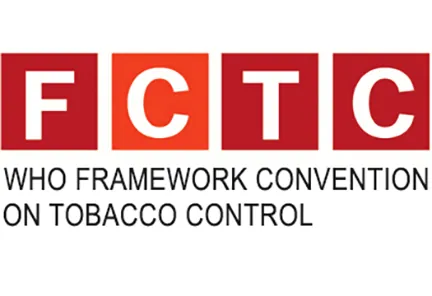
CAPHRA Calls for a Revolutionary Shift in Tobacco Policy at COP11
2025-03-31
Author: Mei
CAPHRA's Bold Stance on Tobacco Control
In a bold move that could reshape the future of global tobacco control, the Coalition of Asia Pacific Tobacco Harm Reduction Advocates (CAPHRA) has urged attendees of the Framework Convention on Tobacco Control's (FCTC) COP11 meeting to abandon outdated prohibitionist tactics. Their message? Embrace harm reduction strategies that are firmly rooted in scientific evidence.
Stagnant Smoking Rates and Lack of Policy Innovation
As the world stands at a crossroads with stagnant smoking rates remaining at 1.1 billion smokers since the year 2000, CAPHRA highlights a critical failure: the FCTC’s reluctance to incorporate harm reduction methods or engage consumer organizations in policymaking discussions. This stagnation raises urgent questions about the efficacy of traditional tobacco control measures, particularly the prevalent "quit or die" mentality.
Voices for Change
Nancy Loucas, CAPHRA’s Executive Coordinator, passionately stated, "The FCTC’s current approach has failed countless individuals. It’s time to prioritize science, inclusion, and pragmatic solutions that work." Loucas points to the millions who have successfully switched to safer alternatives, advocating for their experiences and insights to shape future policies that could save lives.
The Importance of Consumer Advocacy
The upcoming COP11 meeting presents a vital opportunity for the World Health Organization (WHO) and FCTC to grant observer status to consumer advocacy groups for the first time. Loucas remarks, "Without the perspectives of those directly affected by tobacco harm reduction, policymaking becomes disconnected from reality." The continual secrecy that shrouds COP meetings only exacerbates this gap in understanding and trust.
A Call for Transparency and Inclusion
CAPHRA stresses the importance of transparency, urging the need for open consultations with civil society during the proceedings to foster accountability and create a more balanced discourse on global tobacco control. Acknowledging the role of consumer stakeholders could pave the way for innovative and effective strategies that meet the actual needs of smokers seeking harm reduction options.
Looking Ahead to COP11
As the tobacco debate intensifies on the global stage, will COP11 be the turning point where policymakers finally listen to the voices of those impacted by their decisions? Only time will tell, but the call for change has never been louder.



 Brasil (PT)
Brasil (PT)
 Canada (EN)
Canada (EN)
 Chile (ES)
Chile (ES)
 Česko (CS)
Česko (CS)
 대한민국 (KO)
대한민국 (KO)
 España (ES)
España (ES)
 France (FR)
France (FR)
 Hong Kong (EN)
Hong Kong (EN)
 Italia (IT)
Italia (IT)
 日本 (JA)
日本 (JA)
 Magyarország (HU)
Magyarország (HU)
 Norge (NO)
Norge (NO)
 Polska (PL)
Polska (PL)
 Schweiz (DE)
Schweiz (DE)
 Singapore (EN)
Singapore (EN)
 Sverige (SV)
Sverige (SV)
 Suomi (FI)
Suomi (FI)
 Türkiye (TR)
Türkiye (TR)
 الإمارات العربية المتحدة (AR)
الإمارات العربية المتحدة (AR)